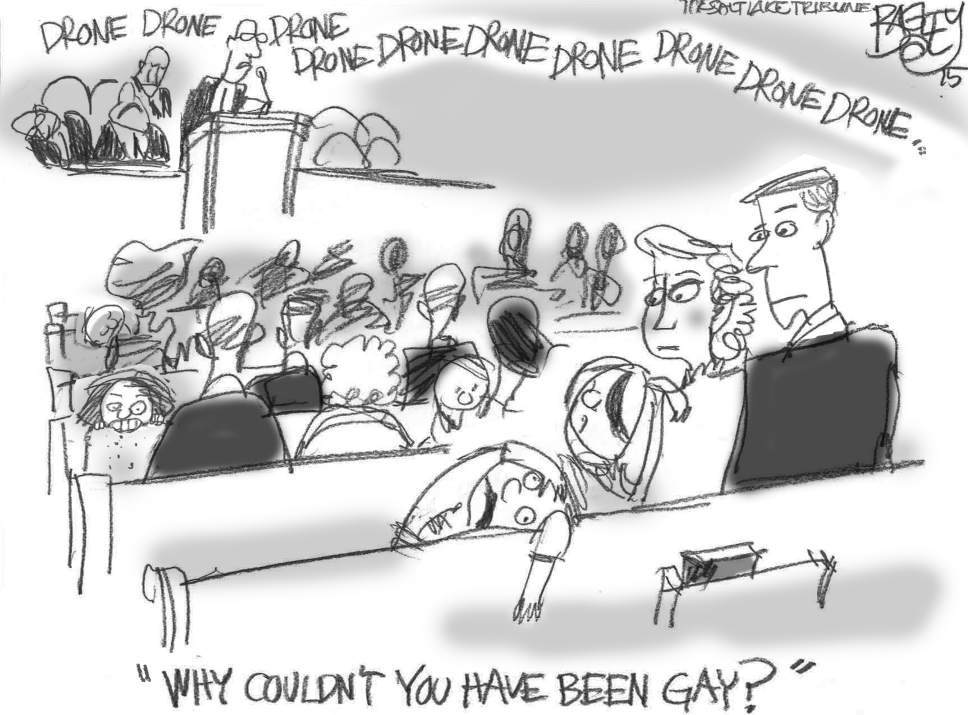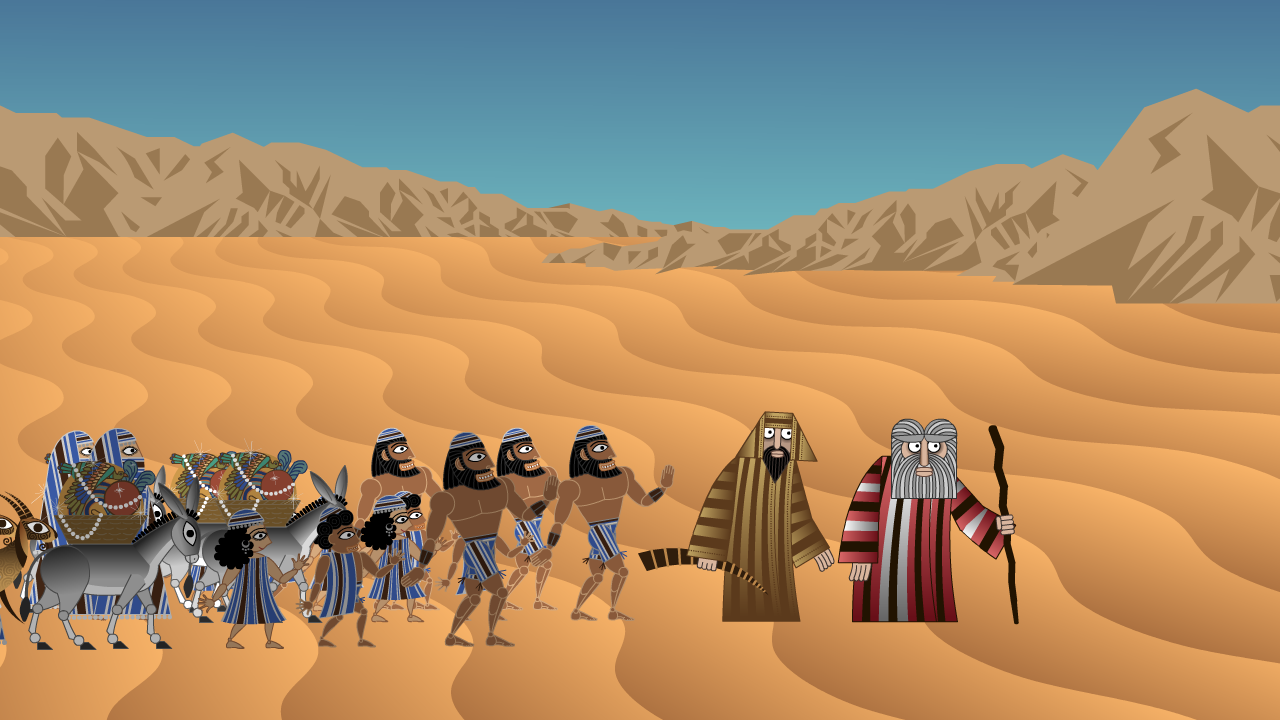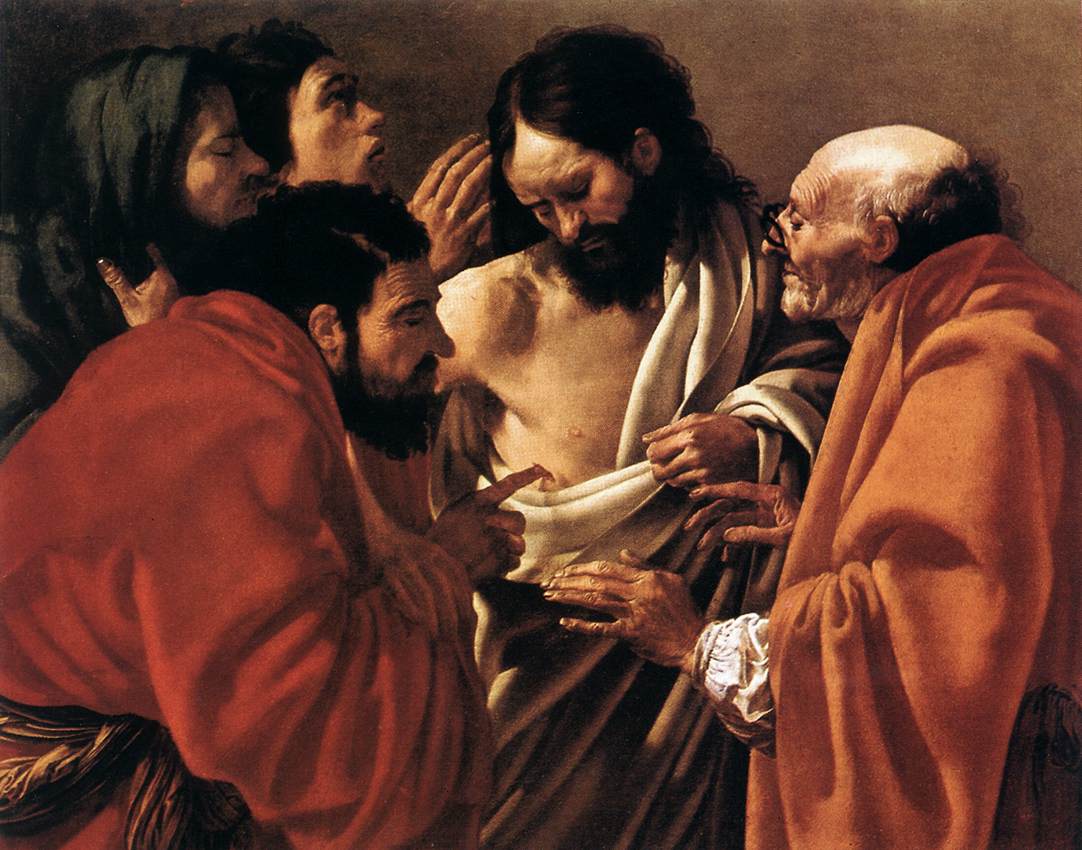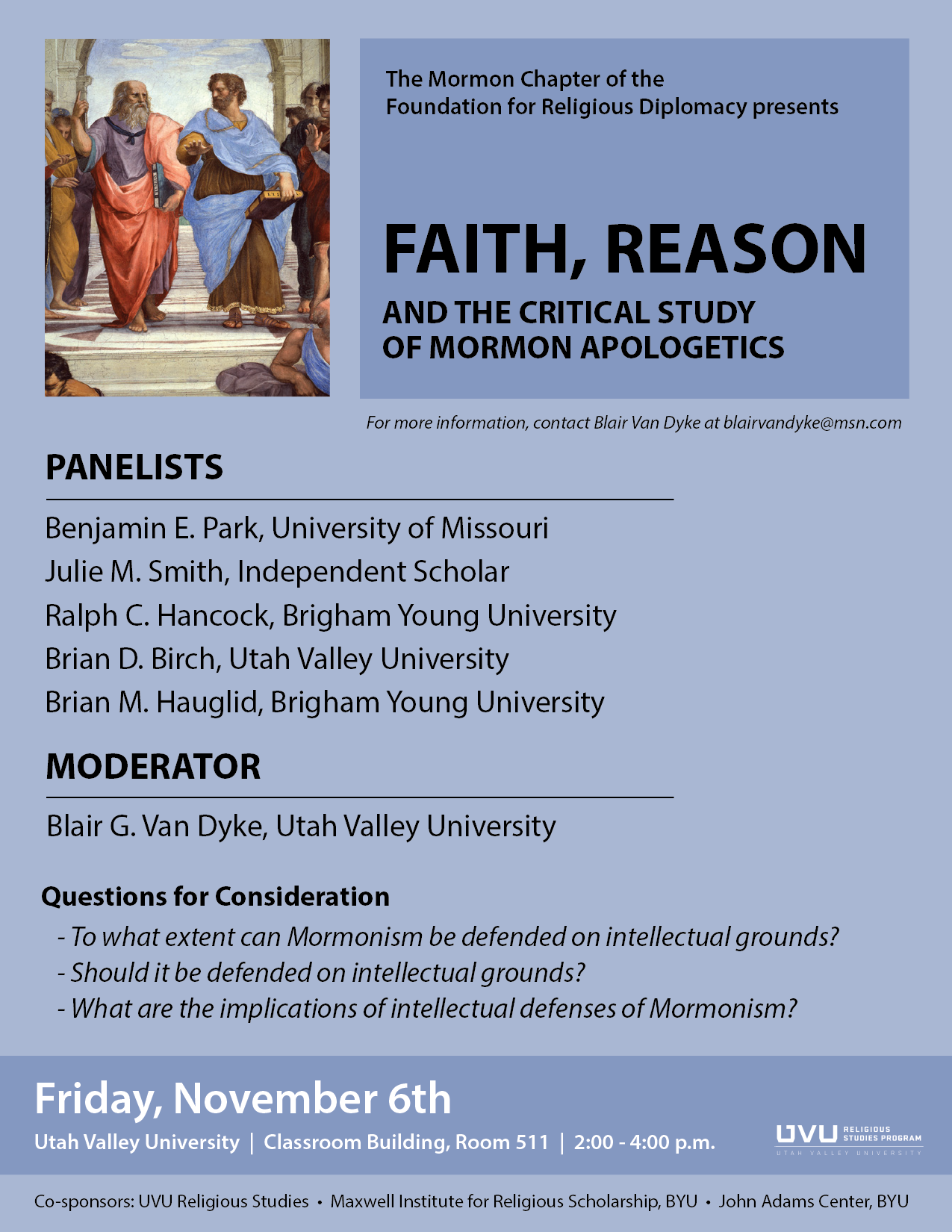-
•
•
29 responses
Here’s how I taught this lesson in my ward: Read More
-
•
•
50 responses
It was a sad Sunday, this 15 November 2015. For two reasons; the major disaster of course was the murder spree in Paris, which has shocked Europe to the core. The Sabbath prayers in our Utrecht ward were for the many victims, and for the grieving host of their loved ones. Europe is united in grief, but also in anger. We consider ourselves at war, a word we do not use easily, not with Islam, but with IS. Even the problem of housing hundreds of thousands of refugees who voted with their feet not to stay in a completely radicalized… Read More
-
•
•
50 responses
I wrote a piece at ReligionandPolitics today about how Ben Carson’s SDA beliefs put him close to the source of creationism. Please give it a read. Ronald Numbers, eminent historian of science, creationism, and Seventh-day Adventism offered useful critique of an earlier draft, my thanks to him. There were a few questions I wanted to address beyond what I wrote, that get more into the history of interpretation. What was the genesis (sorry) of the seven-day structure of Genesis 1? Wasn’t young-earth creationism the only understanding of Genesis until Darwin and evolution force a reevaluation of it? Below, some quick and dirty historical… Read More
-
•
•
99 responses
A few days ago, after the new policies were leaked but before the First Presidency clarified them, I posted a list of possible consequences of the policies here. This post reproduces my list, crossing out those scenarios no longer possible in light of the First Presidency letter. I also made some updates (in bold print). Then I add some general thoughts at the end. Read More
-
•
•
130 responses

UPDATE: this post was written before the First Presidency clarified the new policies. Please see this post, which repeats everything in this post but updates it and provides some concluding thoughts. — I’m thinking about the implications–doctrinal and practical and cultural–of the recent policy changes. Read More
-
•
•
61 responses
The Church of Jesus Christ of Latter-day Saints flared into life as an audacious venture, a scandal, an insult and an invitation to the Christian age. To the believing mind, the Mormon church is charged with keeping the flame of God’s authority alight for the world through the winds of secular modernity. But even without that lens of faith, Mormonism is something distinctly risky, brazen, and peculiar. It casually straddles the chasm between ancient and modern, old world and new, without concern and without a net. It yokes together competing claims to authority, forcing them to pull together despite the… Read More
-
•
•
3 responses
Here again we get a narrative, and in the perceptible foil of a competitor narrative. Once again, Nephi works hard to discredit Laman & Lemuel, and here we can see clearly what their major point is: returning to Jerusalem. It’s easy to imagine a New World experience decades into the future, in the wake of hardships that rival or surpass the hardship of the 8 years in the wilderness—infant mortality, disease, lack of food, the general hardship of coping with an entirely unfamiliar ecosystem, together with whatever struggles they might have had with their native neighbors. It’s easy to imagine… Read More
-
•
•
29 responses
I don’t want to write about gay marriage. So let’s talk about linguistics first. We acquire language in childhood through a long process of listening to and eventually reading the language output of competent speakers of English (or whatever languages prevail in the communities where we grow up). As we are exposed to countless examples of language, we start to build up an internal model of English. We hypothesize about the rules of English and use our hypotheses to generate English statements unlike any we have heard before in response to new situations. Over time, as our hypotheses are confirmed… Read More
-
•
•
26 responses
The law that God gave to ancient Israel was pretty clear and unambiguous: divorce isn’t part of the program. Then the people sued Moses for a bill of divorcement. I have no idea what that conversation between Moses and God was like. Maybe it had parallels to the one where Moses talked God out of destroying the Israelites and starting over. Whatever the conversation, God granted the petition and gave Moses that bill of divorcement. Then came Jesus of Nazareth. Divorce was a normal part of society in his day (even if not anything like divorce in our day). And… Read More
-
•
•
2 responses
Sometimes I feel like I deeply understand the tight integration of extended family, covenant, and connection to God—a trinity that is indeed one in substance. And sometimes, as here, it feels so exotic. I feel like I stand in between worlds. One cannot live today without having these three analyzed as fully distinct. The rhetoric at church tends to place them in complimentary relationship—Zion is when we can get these three together. But reading Nephi it seems like something different. None of the three make any sense without all three. The point of enlisting Ishmael’s family is to raise up… Read More
-
•
•
85 responses

Shem: Oh great. Moses just posted a new policy. Mannassah: More animals we can’t eat? S: Nope, it says we wander in the desert until we are all dead. Read More
-
•
•
3 responses
This was a chapter break in the original edition (end of Chapter Two), but I’m not terribly impressed with whoever’s editorial decision that was. This is clearly not a break. Nephi’s switched from discussing his father’s reading of the Plates of Brass to discussing his own writing—but it’s not meant to be a substantive shift; rather, it’s mean to draw a continuity. I don’t know that Nephi’s being audacious in the same way that you or I (or a General Authority for that matter) might be being audacious if we declared our writings scripture. But he is being audacious in… Read More
-
•
•
115 responses
My default setting when digesting controversial news about the Church is defensive. I’m just emotionally-mentally-psychologically-whatever wired to identify with the institution, its leadership, its interests, and the status quo, at least at first. So I’ve been trying to think this thing through from the point of view of Church leadership. Obviously I’m not privy to any official insight whatsoever, and these are just my own ideas thought through the institutional perspective. Consider every possible caveat covered here. I see at least two possible rationales, from Church leadership’s point of view, for the changes in policy with regard to gay couples and… Read More
-
•
•
4 responses
Dialogue: A Journal of Mormon Thought gets a new editor every five or six years, and that time is now upon us. As a subscriber and supporter, I wanted to get a sense of where the incoming editor, Boyd Jay Petersen, is going to take the journal, so I bought a copy of his Dead Wood and Rushing Water: Essays on Mormon Faith, Culture, and Family (Greg Kofford Books, 2013) to get the lowdown. After all, Kristine is a hard act to follow. After reading the book, I am optimistic. To offer a few comments, I will highlight one essay… Read More
-
•
•
One response
The Third Annual Summer Seminar on Mormon Theology “A Preparatory Redemption: Reading Alma 12–13” Graduate Theological Union, Berkeley, California June 1–June 15, 2016 Sponsored by the Mormon Theology Seminar in partnership with The Laura F. Willes Center for Book of Mormon Studies and The Neal A. Maxwell Institute for Religious Scholarship In the summer of 2016, the Mormon Theology Seminar, in partnership with the Laura F. Willes Center for Book of Mormon Studies and the Neal A. Maxwell Institute at Brigham Young University, will sponsor a seminar for graduate students and faculty devoted to reading Alma 12–13. The seminar will… Read More
-
•
•
2 responses
I’m first struck by what a joy this must’ve been for Lehi. At this point, he’s as committed as he could be, completely immersed in living the life of a prophet that he feels he’s been called to. Of course, it’s a serious question whether or to what extent he’d been exposed to scripture prior to this point. We see here that he was obviously familiar with the fact that there were five books of Moses, and the story of Joseph of Egypt was known to him (as was, of course, the story of Moses that Nephi used earlier). But… Read More
-
•
•
19 responses

This month, I’ll be presenting a paper on the JST at a conference. I’m going to outline the use of the JST in Mark and then suggest that the moves that the JST makes could and should be adopted by LDS biblical scholars. One section of the paper argues that the JST–indeed, all revelation–is not inerrant. Joseph’s use (and nonuse) of the JST later in his ministry suggest that he did not take the JST as a perfected form of scripture. Read More
-
•
•
39 responses

About a week ago, I came across an interesting quote from a talk President Hinckley gave during the October 1981 General Conference (Faith: The Essence of True Religion). He quoted a journalist who had recently given a speech during which the journalist had said that “Certitude is the enemy of religion.” (I’d be fascinated to see the full text of this journalist’s remarks, or even just learn his name.) President Hinckley’s response is challenging for someone like me. After all, I started out blogging at Times and Seasons with a series of posts about epistemic humility. (1, 2, 3, 4)… Read More
-
•
•
17 responses
Here is a poignant scene. Reunions are an important trope in all stories, because they’re an important element in all of our lives. As Mormonism’s grand cosmological narrative makes clear, our very life is about separation from our parents and working toward an eventual reunion—after we’ve made our (usually very messy) journey and acted in faith to do the things that we’ve been commanded to do. Verse one gives us a nice twist, however. It’s not that the brothers have completed their quest and come home like every other Odysseus. Rather, they’ve completed their quest and having done so returned… Read More
-
•
•
25 responses
Zoram is another critical element of this narrative. Once again, we learn later in the Book of Mormon that there was controversy concerning Zoram’s departure from Jerusalem and joining Lehi’s expedition—enough controversy to eventually fuel a serious political movement and secession (Alma 31-35). It’s another instance of Nephi portraying himself as heroic, faithful and possessed of a liberal spirit. One certainly hopes that Lehi’s later blessing of Zoram corroborates Nephi’s account—but Zoram’s joining the Lehite project is another oddity. Why does Zoram join them so readily? He was from the lower classes, perhaps made naturally compliant on account of his… Read More
-
•
•
4 responses

If you are in the Provo area next week: Read More
-
•
•
22 responses
So is this my contemporary sensibilities, my modern moral compass set in a fantastically different, less physically grueling and brutal world that recoils from Nephi’s terrifying justification? Undoubtedly—although that in itself certainly makes it no less right. But the text itself and Nephi’s manner of disclosing and addressing this event offers evidence that something was rotten in Nephi’s Denmark. Read More
-
•
•
30 responses
Once again, reading these difficult passages, I see something prodigious in Nephi, something my soul longs after. At the same time, however, my soul recoils, and chapter four is the realization of the danger inherent in Nephi’s faithful outlook. I want to think that Nephi’s mistake was youthful inexperience—faith and zeal untempered by the wisdom and moral constraint of realizing that every human one confronts is a child of Heavenly Parents and a brother or sister [see comment 1]. Contextualizing our lives within the scriptures seems so right. This is how I want to read them—this is how I want… Read More
-
•
•
9 responses
They misplaced the chapter break. We’ve reached a hard spot in the Book of Mormon for me—perhaps the hardest spot in Nephi’s record. The text in chapter four challenges me on multiple fronts every time I read it. I hope that my wrestling with it is fruitful and faithful, but often it’s merely implacable. One thing that I can see clearly is that we here get Nephi’s commentary on the nature of miracles and the way they interact with human reason and trust. All of us have Laman and Lemuel within us. Analyzing the variables of our life, we simply… Read More
-
•
•
43 responses
At checkout on a recent visit to my favorite SLC bookstore, I was rewarded with a free book: After 150 Years: The Latter-day Saints in Sesquicentennial Perspective (Charles Redd Center for Western Studies, 1983). Loyalty has its perks. A bit dated at 32 years, but this chapter caught my eye: “Testimony and Technology,” by LDS historian James B. Allen. What he didn’t see coming: The Internet. Read More
-
•
•
19 responses
There really is something terribly compelling about Nephi. It’s hard not to be won over by his absolute commitment and tenacity. I want to bracket all my inevitable reading of an older political authority justifying the legitimacy of his reign, countering his opposition’s narratives concerning crucial events at the genesis. Instead, I want here to simply let myself be taken in by a youth who displays this unyielding faith and optimism. It strikes me that this is precisely the attitude and commitment that brings about change. How—in the context of ancient Holy Land Jerusalem—can God transplant a faithful family, a… Read More
-
•
•
11 responses

Perhaps we literally need to feel our own pain in order to feel the pain of others. From a scientific perspective: The ability to feel the pain of others is based on neurobiological processes which underlie pain experience in oneself. Using innovative methods, an international research team headed by psychologist Claus Lamm from the University of Vienna could show that a reduction of self-experienced pain leads to a reduction in empathy for pain in others as well. From an aesthetic perspective (I realize screamo is not everyone’s idea of a pleasant Monday morning. Lyrics are below the video clip): … Read More
-
•
•
20 responses
There’s a reason why this—the return for the plates—is the first event Nephi mentions following their departure from Jerusalem. I wonder if there’s not also an inspired reason for it to come upfront. Lehi’s theophany and departure is the rupture that opens a new dispensation. The story of the retrieval of the record of Laban is the founding of Nephite history, the origin of Nephite political legitimacy, and perhaps even the founding of Nephite religion. Once again, there is a great deal going on in this story, with absences that are as revealing as what gets stated. Nephi subtly lets… Read More
-
•
•
I’ve no desire to rob those who are physically large with a means of relating themselves to Nephi. But I can’t for the life of me see how we connect “large in stature” with physically large. [Note: later in the text we do get a direct connection between Nephi’s stature and physical size, so perhaps that later connection colors things here; but for all we know, these were different words all together that both came out as ‘stature’ on Joseph’s stone.] The contrast in this clause is with young—which I suppose might be intuitively connected to physical size—my children do… Read More
-
•
•
40 responses

In the Salt Lake Tribune of October 5, Jana Riess regrets that the top leadership of the Mormon church is all-white and overwhelmingly American, and that the recent apostolic callings missed the chance to reflect the church’s international diversity. Others have expressed the same disappointment. I can appreciate their concern, but I wonder how many non-American Mormons would agree. Are we certain that an apostle from Brazil or Kenya would be preferred by most Mormons in 130 other countries above a seasoned leader from Utah? Or did some of those disappointed Americans perhaps react from a “white guilt / white… Read More
